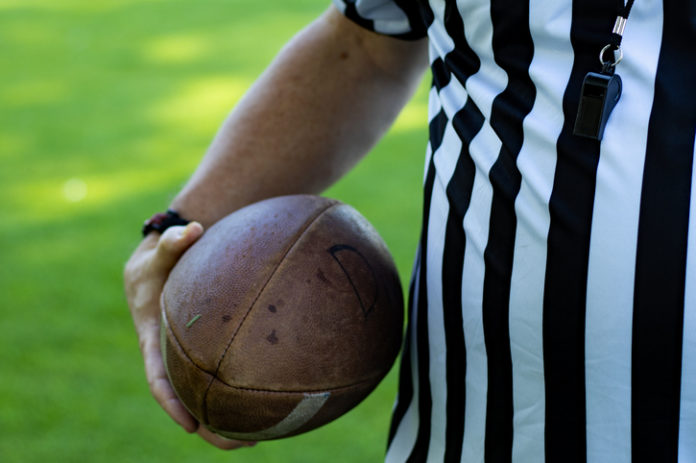No matter what sport you have watched in person, or on the television, there is never any shortage of spectators who know the game better than the referees. Youth sports is no different. The sports officials who referee youth and high school sports knew what they were in for when they signed up for the job; listening to coaches, players, and parents complain along the sidelines. But have the referees been pushed too far?
Did you know there is a shortage in athletic sports officials? Many people would not consider having their son/daughter referee a sport. Nobody really wants to think about their child or teenager being yelled at, sworn at, or ridiculed by so many individuals. Yet this is the way adult sports officials are treated every day, at many different sporting events across America.
According to The National Association of Sports Officials (NASO), “there was a significant drop in sports officials since 2020, from 29,000 to 23,000. Many leave the profession for good (about 70%) in the first three years of getting their officiating licenses, and about half of referees surveyed have felt fearful for their own safety, a coach’s or player’s”. Many officials were fed up even before COVID-19, as the decline in referees was obvious, and decided to cease officiating all together. Few occupations require an individual to be right all of the time-look at weather forecasters! Officials are tired of being treated like they are supposed to be right all the time, that mistakes can’t and won’t happen. They also get a ton of grief from along the sidelines.
Shouting from the sidelines is nothing new and many people feel it is their right to yell at their referees when things are not going as they would like. Officials have the authority to ask a player, coach, parent or parents to leave the establishment where the sport is being played, if they feel the behavior is aggressive, contains profanity or stops the flow of the game, or interrupts the referee’s concentration.
Anyone who has been a spectator at a high school soccer game and witnessed this happening knows it all too well. An official can and will ask all of the spectators to leave if they feel it is necessary to alleviate the loud, negative, and often offensive chatter. It clearly states a message that the officials are the ones maintaining the rules and obligations of the game, as well as the safety of the teams playing. They are the paid, unbiased, licensed professionals in charge of the game.
Many youth sports associations have come up with unique ways to deal with the sideline chatter at athletic games. For example, Nordonia Hills Soccer Association enacted “silent Sunday” as a means to get coaches, parents, and spectators to hush up.
There are less referees available to officiate games, thus more “rookie” officials are calling harder, more challenging, higher level games because the experienced officials are leaving or have left the field. Experienced officials mentor new referees to increase their skill and comfort at each level. Officials used to have to wait a handful of years to be called up to referee high school varsity games, but now they get higher level games sooner because the experienced are leaving the profession. Athletic officials are paid for their time to referee sports events at different rates depending on their officiating level. Athletic players of all ages can get involved by becoming certified.
Creating an environment of mutual respect between spectators and athletic officials encourages younger individuals to get involved in refereeing sports that they enjoy, while making some serious coin.
Recently, the head coach and asst. coach of Walsh Jesuit went after the referees on Nordonia High School’s turf, where they hosted the Strongsville and Walsh Jesuit OHSAA regional final. Macedonia police broke up the scene after a fan stormed onto field. https://www.wdtn.com/news/ohio/local-school-responds-after-coaches-fans-go-after-refs-during-soccer-match/amp/
Every Nordonia High School event starts with the announcer introducing the officials and encouraging sportsmanship behavior by all. It’s a brief reminder of the behavior necessary to have a good game. In fact, every athletic event at every high school has an announcement such as this to start all games, to remind coaches, players, and spectators.
Ohio Athletics Sports Officials deserve respect and safety from spectators when they step onto the field, or into a gym, at every athletic event.
Would you allow your son or daughter to officiate a sport? In Ohio, a child must be fourteen to get certified. Officiating a sport helps teach management of one’s emotions, responses, and handling of issues while under pressure. There are few positions out there that teach all of those skills. It is an excellent job for youths who already play sports, who know the rules, and who want to have fun while earning money.
For more information on becoming a licensed high school athletic official in Ohio, contact OHSAA, Ohio High School Athletic Association. https://www.ohsaa.org/officiating/permits






















